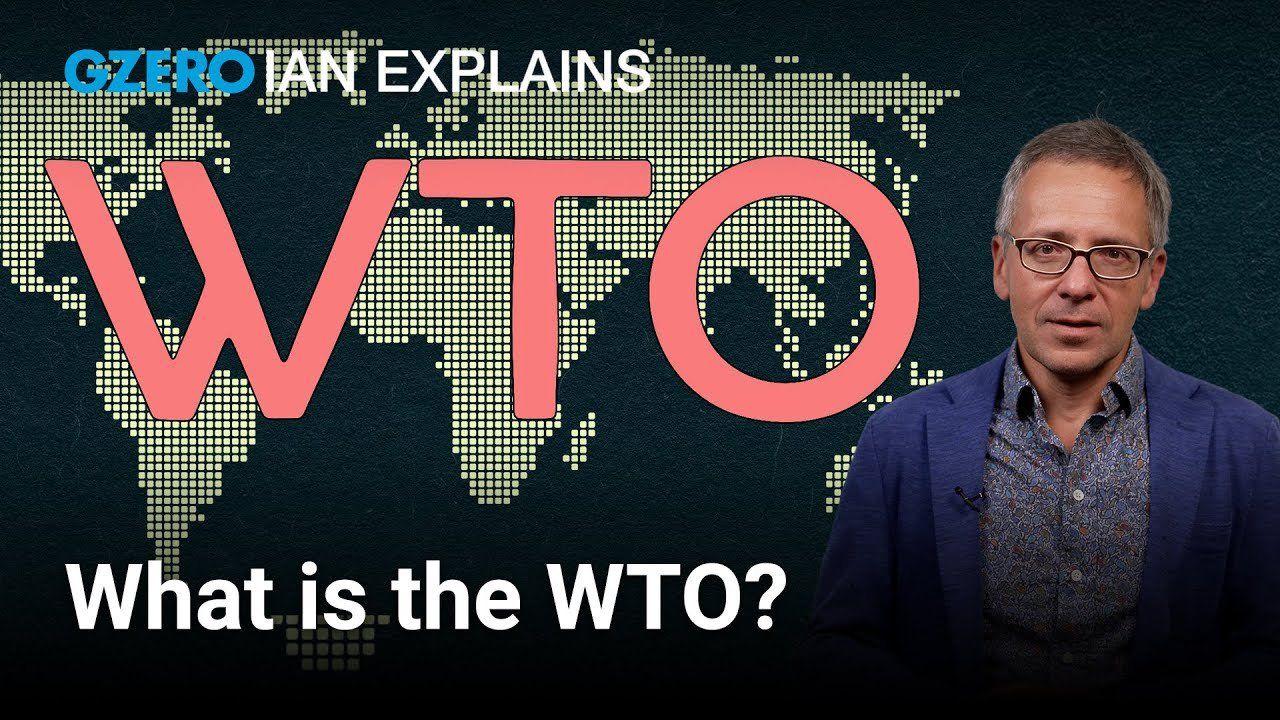Ian Explains
Ian Explains: What is the World Trade Organization?

Ian Explains: What is the World Trade Organization? | GZERO Media

You probably don’t spend a ton of time thinking about the World Trade Organization (WTO), but it has a huge role in almost every aspect of your daily life—from your morning Brazil-roasted coffee to the Chinese-made smartphone you’re probably using to watch this video.
The WTO is an international organization that deals with the complicated business of moving goods and services across borders. It’s kind of like the referee for global trade, setting the rules and providing a forum for countries to negotiate agreements and resolve disputes. It’s why you can buy avocados from Mexico, clothes from Vietnam, or cars from Korea in the United States without a second thought.
Global trade ballooned to a staggering $32 trillion in 2022 and the WTO oversees 98% of it.
The WTO has been a force for globalization. It’s opened up new markets, lowered tariffs, and lifted millions out of poverty, but it’s also received criticism for favoring wealthy nations and exacerbating global inequality. Not to mention a broken dispute settlement system that’s made resolving international trade conflict virtually impossible.
On Ian Explains, Ian Bremmer dives into the history of the WTO, why the US is blocking appointments of WTO judges, and what all of this has to do with Japanese octopus.
The US and Israel have launched a series of strikes against Iran at a moment when the Islamic Regime is at its weakest. Ian Bremmer spoke with Iran expert Karim Sadjadpour in Munich earlier this month to understand the choices the regime and population are facing.
Think you know what's going on around the world? Here's your chance to prove it.
History doesn’t often repeat itself, but it does rhyme. Such appears to be the case, as the United States appears again to be readying for military action against Iran.